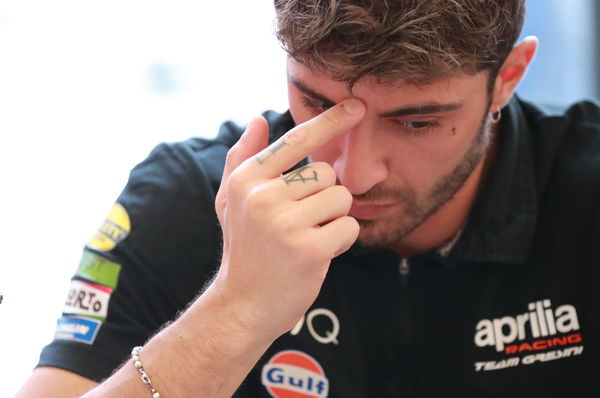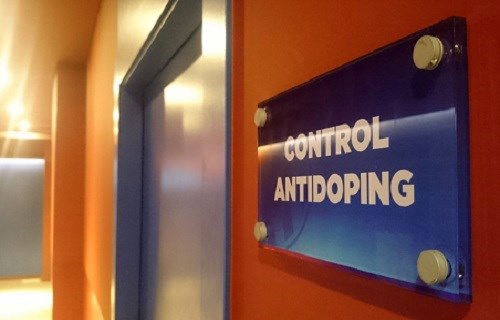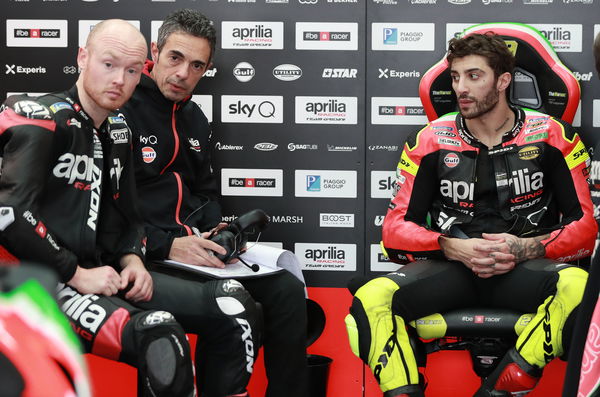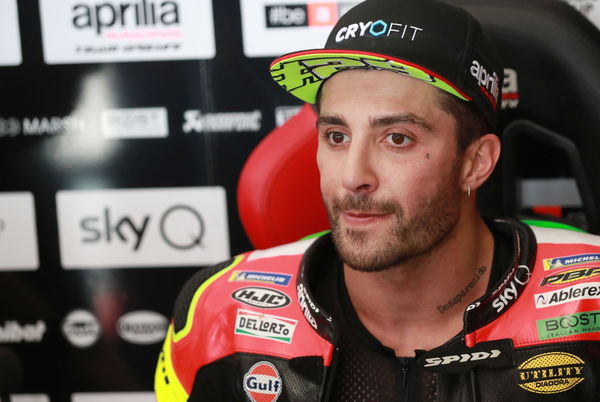Why ignorance wasn't a defence in Andrea Iannone's drugs ban case
The FIM and WADA may accept Andrea Iannone ingested a banned substance unknowingly but that doesn't necessarily earn him a pardon...

Andrea Iannone’s racing career hangs in the balance after he was handed an 18-month ban from competing as a result of testing positive for a banned steroid.
After almost four months of waiting, the FIM and the International Disciplinary Court upheld the provisional suspension for ingesting drostonalone and has formally banned him from competition.
However, what has confused both Iannone and his Aprilia MotoGP team is the apparent admission that the FIM accepted he ingested the steroid via contaminated meat unintentionally, though it is worth noting this claim was made by the affected parties and not publicly acknowledged by the governing body.
So why has he been banned?
While doping cases in motorsport are unusual, much less a formal ban, the argument of ingesting a prohibited substance involuntarily certainly isn’t. In fact, there are multiple cases across all sports that hinged on the defence of a substance being taken unknowingly, from medication to meat.
What muddies the waters of this precedent though is the somewhat scattered rulings occurring from this argument.
Indeed, as recently as January, Robert Farah - the No.1 ranked tennis doubles player – was cleared of wrongdoing after the ITF accepted his argument he’d ingested a banned steroid in contaminated meat cooked by his mother.
In 2010, athlete Callum Priestley was banned for two years for a similar reason with his failure to prove he wasn't at fault or negligent in his actions prevented him from winning his case.
On the other hand, decorated cyclist and Tour de France winner Alberto Contador was given a one-year ban after being found with traces of a banned steroid in his urine, but this was overturned some months later by the Royal Spanish Cycling Federation.
At the time, the guilty verdict was based on the suspicious likelihood of him ingesting a banned substance through meat given only one example of contamination was found in more than 83,000 samples taken across the EU in previous years.
That said, an article on Stuff dated in 2011, suggested there was a growing body of scientific proof that contaminated meat was more common than stated, with experts concerned more and more innocent athletes are being banned.
Alas for Iannone, arguing ignorance does not generally go down well with investigators, who have come up against myriad of retorts from proven guilty parties protesting their innocence over the years, only to be found out later down the line (Lance Armstrong springs to mind…)
Moreover, WADA (World Anti-doping Agency) generally places the emphasis on the athlete to take responsibility for their actions when it comes to maintaining fitness without breaking the rules, rendering protestations of it being simple mistake useless.

Has Andrea Iannone been made an example of?
That said, it could be fair to say Iannone is being made an example of amid a serious crackdown against drug cheats in recent years.
Such has been scourge of cheating over the decades – especially in light of the systematic doping programme employed by the Russian government – WADA has been keen to make an example of those that flout the rules, knowingly or otherwise. The length of the 18-month ban, which could have been as long as four years, arguably reflects this.
Indeed, so strict are the measures that you don’t even need to fail a test to be banned, with a number of sportspeople suspended over the years because they’ve simply missed tests. Under the rules, athletes must alert authorities as to their whereabouts so that they are able to give a sample at any randomised time – if you miss three of these, it can lead to a ban.
Perhaps the more irksome thing for Iannone is that drostanolone is not a substance that would naturally lead to making him quicker on a bike. The steroid is largely considered useful for bulking up and endurance, which doesn’t necessarily apply to motorcycle racing when being lighter and more agile is considered the physical advantage.
However, the rareness of doping cases in motorsport has previously been apportioned to the sporadic testing that takes place, with some riders – including Cal Crutchlow - even petitioning for more standardised testing to take place amid fears the system is being played and doping is more rife than it seems.
With this in mind, Iannone’s ban could well have been used to send out a warning to those that may or may not be breaking the rules.

What next for Andrea Iannone?
In terms of his MotoGP career, it’s hard to see – unless he is exonerated quickly on appeal – how Iannone can come back from this.
Though Aprilia has stood by him throughout his case, the length of the ban – which would take him up to the middle of 2021 - is likely to freeze him out his the team’s future plans since his contract was due to end at the conclusion of this season.
Given his future was already uncertain in the wake of a lacklustre season in 2019 and currently no prospect of competing again for more than a year, at best we won’t likely see Iannone racing again until 2022, wherever it may be.











